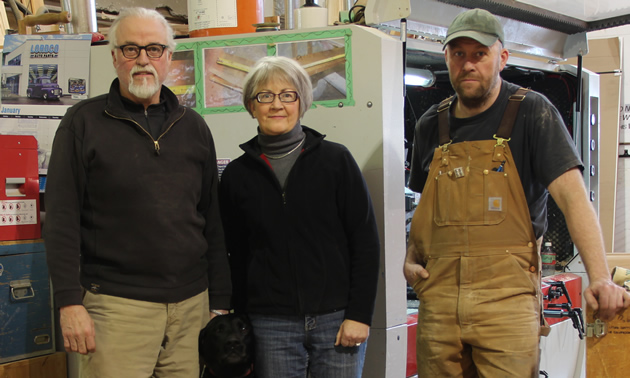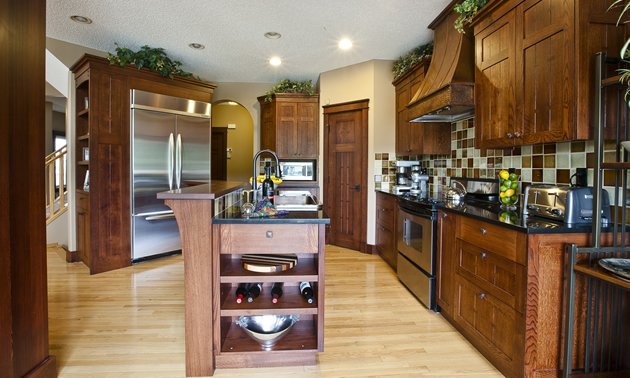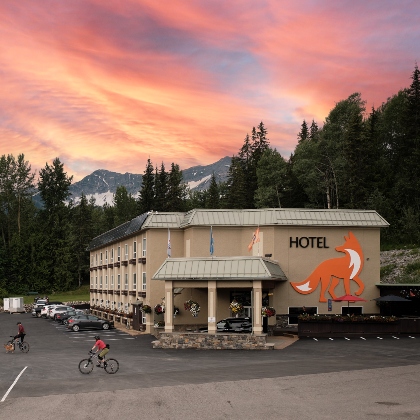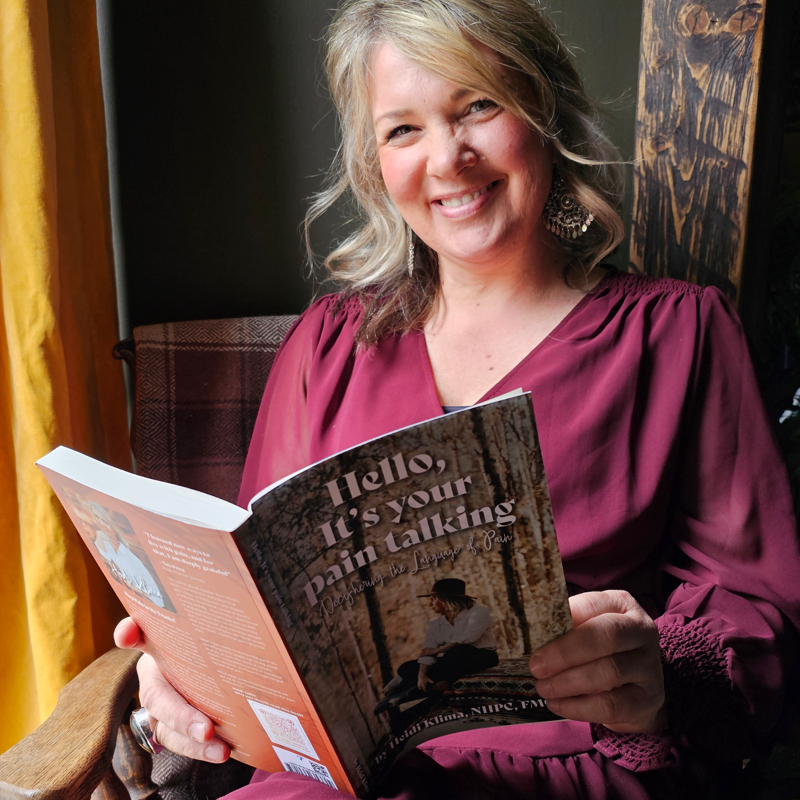Fernie’s River City
River City Woodworks Inc. of Fernie, B.C., crafts solid wood doors, cabinetry and decor accents
One of the questions I had planned to ask Willard Ripley, majority shareholder in River City Woodworks Inc. in Fernie, B.C., was, “After 25 years in business, how do you keep your attitude fresh?” Just minutes into our conversation, though, the answer to that question was obvious.
Ripley loves his work. After studying art and design in Eastern Canada as a young man, he opened a small studio where he made furniture. He moved to Fernie for easy access to Rocky Mountain skiing, and opened a woodworking business there in 1989, building several houses and a woodworking shop. He said the business now employs 15 people.
A philosophy for life
“We’re lifestyle oriented,” Ripley said. “There are three shareholders in the business—me, my wife, Susan Ripley, and our shop foreman, Fred Fehrner—and we’re not really looking at aggressive growth. We’re interested in doing good work and making a reasonable living.”
Today, River City Woodworks makes custom solid wood doors, cabinetry, flooring and decorative trim and mouldings for private homes and commercial buildings. Ripley said that River City’s customers are at the higher end of the residential market, and are mostly located in B.C.'s Columbia Valley and East Kootenay regions as well as southwestern Alberta, with a growing number of clients across North America and as far away as Japan.
An ancient source meets current needs
The Forest Stewardship Council (FSC) is an international agency promoting the responsible management of forests worldwide; whenever possible, River City uses wood that is FSC certified. Ripley buys wood from lumber brokers, specifying the type, quantity and grade he wants. He explained the merits of solid wood as a very durable, energy-efficient product. Trees absorb carbon; once harvested, solid wood products sequester carbon. Refinished and repurposed, the products can last for generations.
“It takes a very small amount of energy to produce the raw material,” Ripley said, “and also a small amount for the consumer wood product to be gotten rid of—in fact, it can be left to biodegrade, unlike consumer products of man-made materials like metal or plastics. Wood products, from a life cycle-analysis perspective, produce negative carbon footprint numbers, making them a very green choice.”
Proud to comply with tough new standards
In 2012, the National Building Code of Canada brought in new standards for exterior doors, requiring that they meet the same standards for air and water infiltration and structural integrity as windows have had to meet. There was a grace period before the standard came into force on December 20, 2013, and River City used that period to make its doors compliant with the tough new rules.
“Our exterior doors go through a rigorous testing process to meet the new building code standards,” said Ripley. “There are very few small producers of custom solid wood doors who can say that. We’re allowed to put a label on our doors saying (that) they meet the standards. That’s something that builders look for, and building inspectors certainly look for. Now, you can’t install an exterior door that doesn’t meet the code.”
River City’s skilled cabinetmakers (classified as “journeyman joiners”) are a multinational group hailing from Switzerland, Australia, Ireland and Britain, as well as Canada.
“We’re a bunch of woodworkers that want to produce work that we and our customers can be proud of,” Ripley said.








Comments